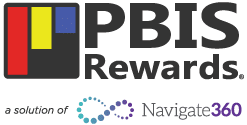In a PBIS initiative, student behavior can vary widely for a number of reasons. The majority of students will remain in Tier 1, exhibiting behaviors appropriate for their age group and the schoolwide matrix. But for students who struggle with behavior beyond Tier 1 expectations, Tier 2 interventions can help them to build the skills they need for success. For many, check in check out intervention can provide the boost they need to move back into Tier 1.
The Basics of Check In Check Out Intervention
Approximately 10-15% of students struggle to meet the behavioral expectations outlined in the schoolwide matrix. The root causes of challenging behavior are as varied as the personalities of the students who are struggling. For some, behavioral challenges are the result of developmental lag or an underlying medical condition. Others may struggle with behavior because they lack positive relationships in their lives, either at home or at school with their peers and teachers. Confidence and self-esteem can play a role, as can curriculum challenges, attention seeking, or classroom environment. Check in check out intervention can help students to overcome many of the obstacles that prevent positive behavior.
Check in check out (CICO) is a structured approach focusing on consistent monitoring and positive recognition to encourage positive conduct. Within Tier 2, CICO is a group-style intervention designed to aid students with similar behavioral challenges in developing behavioral skills. Typically, a check in check out intervention plan involves a modest number of behavioral goals, usually between three and five. CICO involves a daily check in with a CICO coach in the morning and a check out in the afternoon, providing opportunities for feedback and reinforcement. Throughout the day, teachers and staff members who interact with each CICO student review that student’s behavioral goals and score them on the progress they made that day. Daily or weekly reports are sent home to enable parents or caregivers to review their student’s progress within the plan.
The Goal of Check In Check Out
A key element of CICO is the establishment of clear expectations for behavior. Staff members responsible for overseeing Tier 2 interventions work with students to collaboratively set specific, measurable, and achievable goals. This goal-setting helps the student to understand the desired behavior and provides a framework for assessment and reinforcement.
Although CICO is typically a small-group intervention, specific goals help each student to benefit from individualized support. The targeted goals and personalized feedback allow for tailored strategies to address specific behavioral issues. By understanding the unique needs and motivations of each student, the intervention becomes more effective in promoting positive change.
Check in check out intervention helps struggling students develop appropriate behaviors that align with established behavioral norms in the school. The goal of CICO is student progression from Tier 2 back into Tier 1 with the majority of their peers.
Keys to Success in Check In Check Out Intervention
For the subset of students who need a bit more support in developing positive behaviors, check in check out places increased focus on specific behaviors. But for CICO to be effective, there are five key elements that must accompany any CICO program:
Consistency
Daily check ins and check outs create a routine, giving the student a crucial sense of predictability in the school environment. The CICO coach consistently monitors and reinforces positive behavior while also addressing any challenges or setbacks. This regular feedback provides accountability for the student and enables them to understand the direct connection between behavior and consequences.
Communication
Behavior improvement requires collaboration involving the student, CICO coach, parents or caregivers, and any other involved adult. This approach should include discussion related to challenges, goals, progress made, and adjustments to the student’s CICO plan.
Recognition
Reinforcement of desired behaviors can be more effective with a reward system. The acknowledgment of positive behavior, accompanied with rewards, solidifies the connection between actions and outcomes. Rewards can be tailored to suit the individual, ranging from verbal praise to tangible incentives, which can serve to further motivate the student.
Progress Monitoring
Regular data collection, such as tracking daily points or behavioral incidents, provides a quantitative measurement that can be used for improvement. Analysis of CICO data enables the school to adjust interventions as needed and can provide clear indicators of the student’s progress toward Tier 1 goals.
School Environment
Interventions such as CICO cannot exist without a supportive school environment. Collaboration between teachers, administrators, and support staff is critical to a positive, supportive educational atmosphere for all students. A PBIS initiative establishes schoolwide standards for behavior and as part of PBIS, check in check out intervention helps to reinforce desired standards.
Including check in check out as part of a schoolwide PBIS initiative can help students who struggle with challenging behaviors to develop the skills they need to be successful. Adopting CICO best practices will help your school to get the most out of this Tier 2 intervention.
PBIS Rewards and Check In Check Out Intervention
Check in check out is a powerful tool for improving behavior within the school setting. Clear expectations, consistency, communication and collaboration, progress monitoring, and useful incentives are all key parts of a PBIS initiative. Students in a CICO program within a PBIS initiative experience the dual benefit of group-style interventions as well as individualized supports. For schools that use PBIS Rewards to digitally manage their PBIS initiative, check in check out intervention is easy to track and assess. PBIS Rewards’ Check-In/Check-Out feature is completely digital, with features that enable schools to seamlessly manage Tier 2 interventions within their PBIS initiative. For more information or to speak with a PBIS Rewards expert, contact us!


